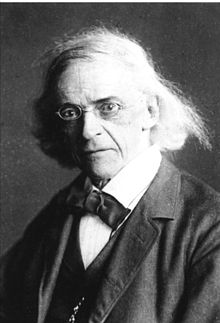Theodore Mommsen
| Theodor Mommsen | |
|---|---|

Christian Matthias Theodor Mommsen
|
|
| Born | Christian Matthias Theodor Mommsen 30 November 1817 Garding, Schleswig |
| Died | 1 November 1903 (aged 85) Charlottenburg, German Empire |
| Nationality | German |
| Fields | Classical scholar, jurist, historian |
| Institutions |
University of Leipzig University of Zurich University of Breslau University of Berlin |
| Alma mater | University of Kiel |
| Notable students | Eduard Schwartz |
| Notable awards |
Pour le Mérite (civil class) Nobel Prize in Literature 1902 |
Christian Matthias Theodor Mommsen (30 November 1817 – 1 November 1903) was a German classical scholar, historian, jurist, journalist, politician, archaeologist and writer generally regarded as one of the greatest classicists of the 19th century. His work regarding Roman history is still of fundamental importance for contemporary research. He received the Nobel Prize in Literature in 1902 for being "the greatest living master of the art of historical writing, with special reference to his monumental work A History of Rome", after having been nominated by 18 members of the Prussian Academy of Sciences. He was also a prominent German politician, as a member of the Prussian and German parliaments. His works on Roman law and on the law of obligations had a significant impact on the German civil code (BGB).
Mommsen was born to German parents in Garding in the Duchy of Schleswig in 1817, then ruled by the king of Denmark, and grew up in Bad Oldesloe in Holstein, where his father was a Lutheran minister. He studied mostly at home, though he attended the gymnasium Christianeum in Altona for four years. He studied Greek and Latin and received his diploma in 1837. As he could not afford to study at Göttingen, he enrolled at the University of Kiel.
...
Wikipedia
